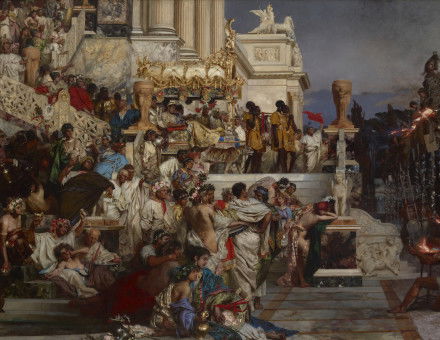History Today
Primus in Afros? The Career of John Gregory S. J.
Among the English pioneers in Southern Africa must be honoured the name of John Gregory of Lyme Regis, writes W.F. Rea, who embarked for Mozambique from the Jesuit College at Goa during the reign of Charles II.
The Territorial Army in Peace and War
Past services cannot determine future policy, writes Brian Bond, but the record of the Territorial Army suggests that the force has always given returns out of all proportion to the small amount invested in it.
The World Map
About the beginning of the fourteenth century, writes A.L. Moir, a prebendary of Lincoln Cathedral completed his ambitious world map, in which geographical information is mixed with historical details and pictures of fantastic legendary monsters.
Historians Reconsidered: Jean Froissart
C.T. Allmand introduces the chronicler, Jean Froissart, who left to posterity a fascinating account of the events and attitudes of his age, which he himself mirrored so faithfully.
The Slate Figures of Cornwall
What should we know beyond our own memory without history? A.L. Rowse finds much local history in the series of fine slate-carved monuments that, wherever slate is quarried, enrich so many Cornish churches.
George, Duke of Clarence
Hugh Ross Williamson describes how, in the fierce dynastic struggles of the later fifteenth century, Edward IV’s brother, George Plantagenet, played a devious and ill-fated part.
Why Early Christians Were Persecuted by the Romans
Popular suspicion rather than imperial policy, writes Bruce S. Eastwood, was responsible for Christian persecution in the Roman Empire.
The Rise and Fall of Jacques Coeur, Part Two
Just when the great merchant-banker had reached the zenith of his career, writes A.R. Myers, Jacques Couer was suddenly disgraced and imprisoned. Three years later, he was able to escape and took refuge, first in Provence, then in Rome with a sympathetic Pope.
The Spider King: Louis XI of France
Though ill-famed, even in his own day, Louis XI was also described as “the wisest and most dexterous” of medieval rulers. By J.H.M. Salmon.



